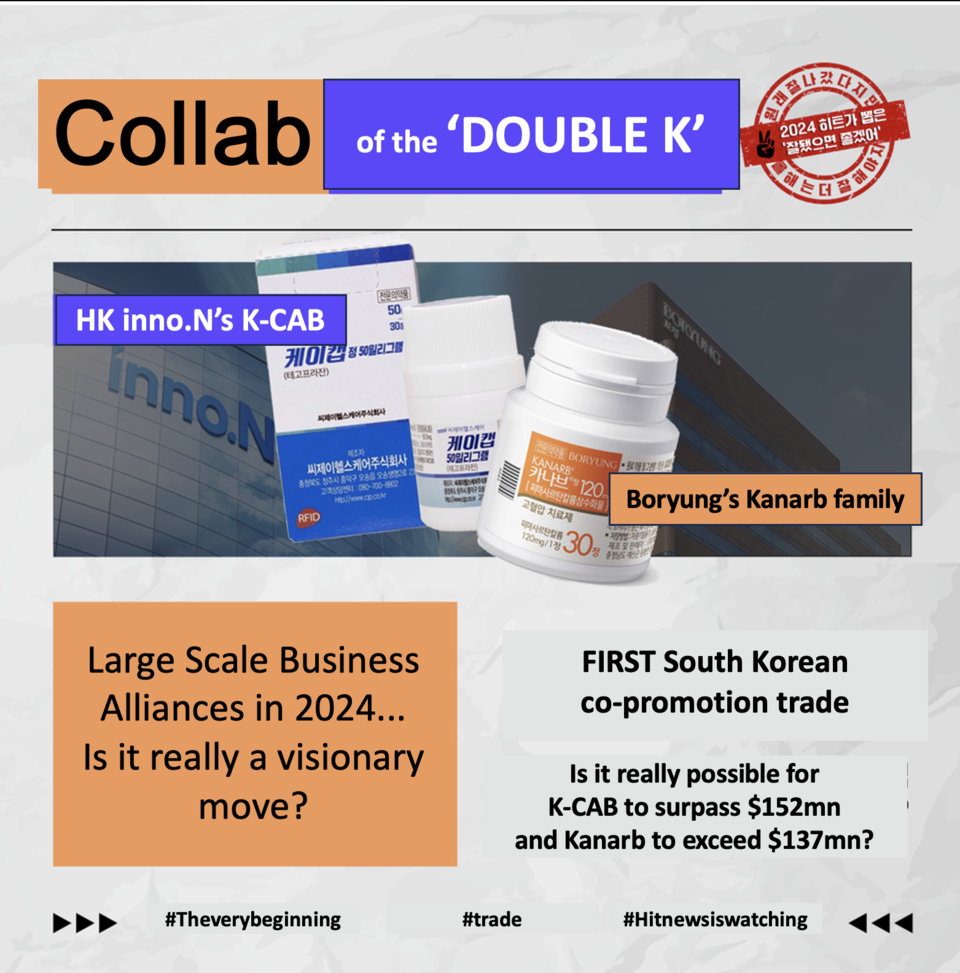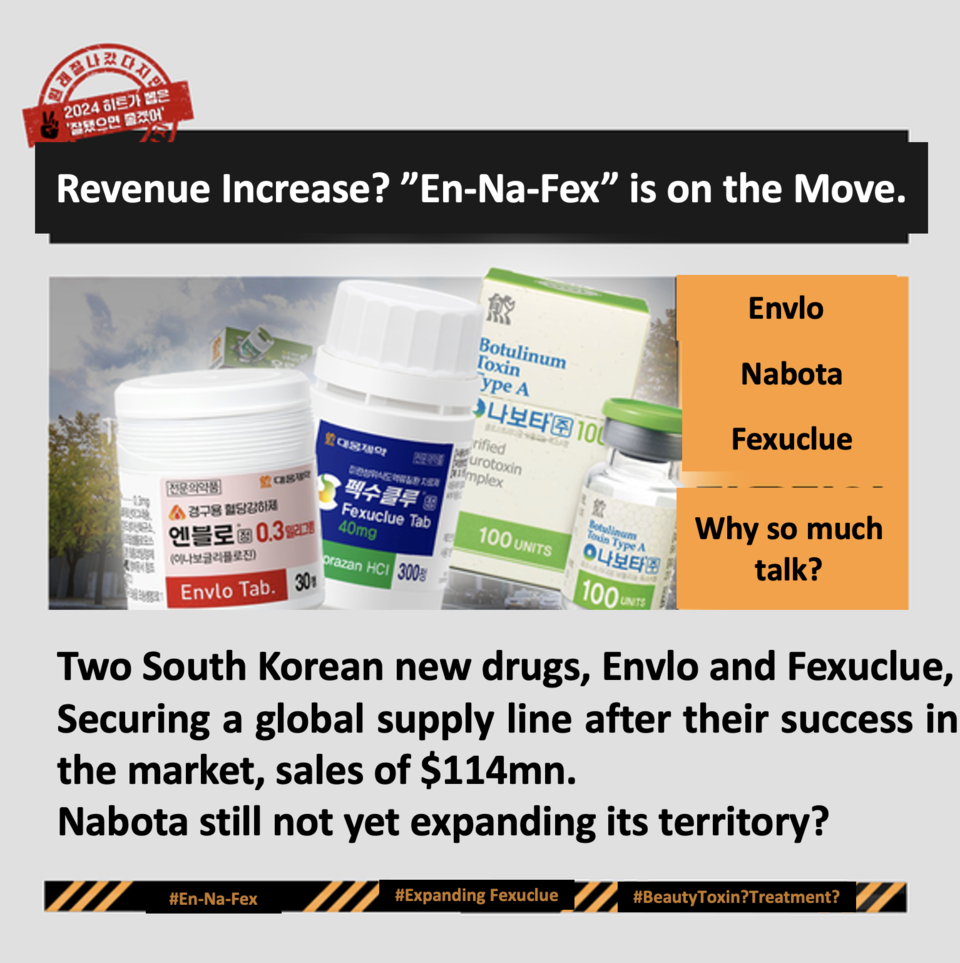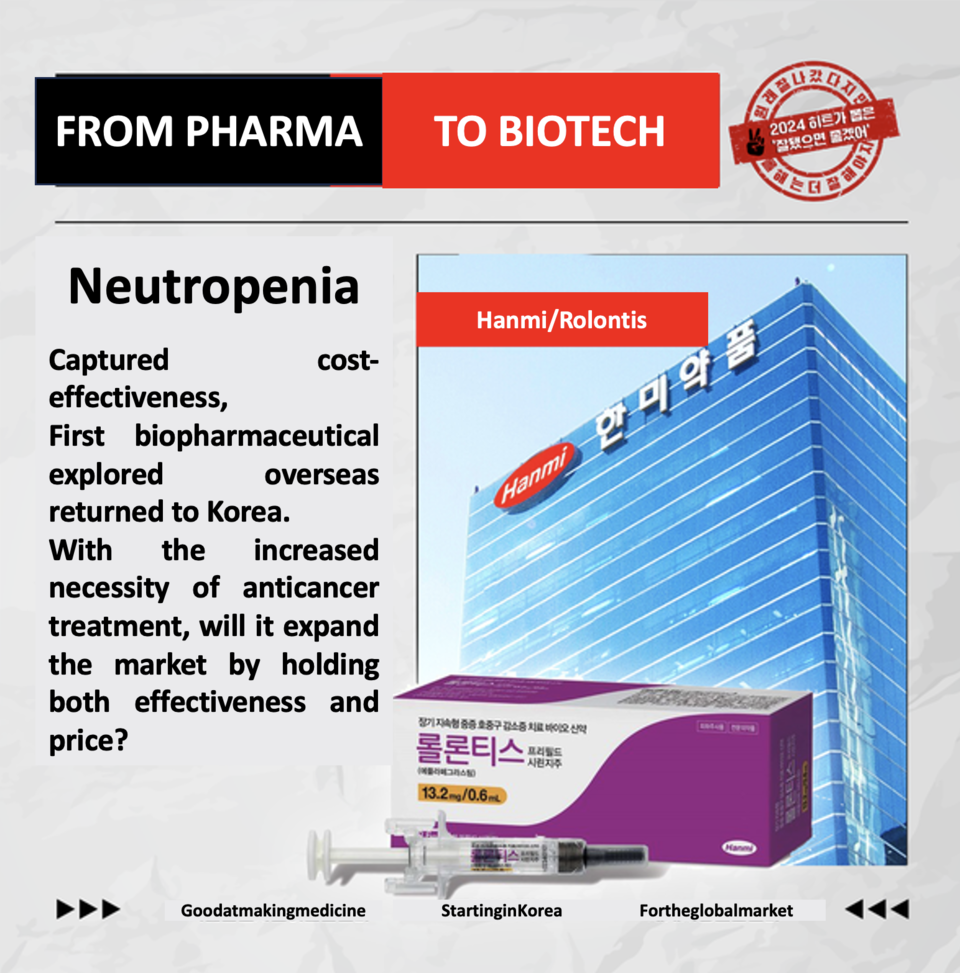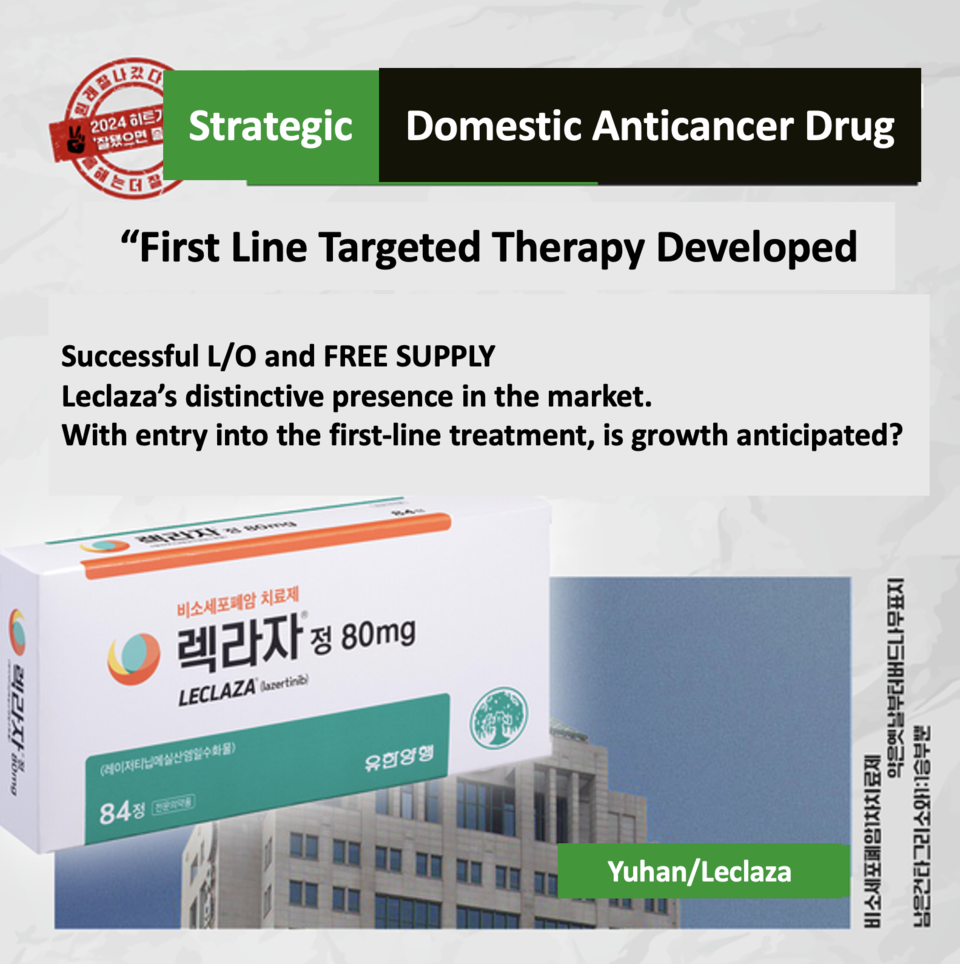2024 Outlook: Hopes for Success of South Korean New Drugs
HK inno.N’s K-CAB, Boryung’s ‘Kanarb’ Family
Daewoong’s Envlo, Nabota, Fexuclue
Hanmi’s Rolontis, Yuhan’s Leclaza




‘Double K’ alliance shifts pharma norms: HK inno.N and Boryung’s game-changing exchange
HitNews has unveiled this year's standout pharmaceutical developments, highlighting the pioneering collaborative effort between HK inno.N and Boryung. This groundbreaking alliance showcases the strategic partnership behind HK inno.N's esophageal reflux disease treatment, 'K-CAB (active ingredient Tegoprazan),' and Boryung's hypertension treatment 'Kanarb (active ingredient Fimasartan).' The alliance, referred to as 'Double K,' marks a paradigm shift in the industry.
The end of 2023 witnessed a pivotal exchange between the two companies. Boryung assumed responsibility for K-CAB and the oral disintegrating tablet, while HK inno.N took joint control of four main products, excluding two from the Kanarb family, which remained under Daewon Pharma and 'Akarb,' focusing on streamlined business operations.
Beyond a monumental shift in product sales strategies, this move signifies a departure from the pharmaceutical industry's traditional closed-off approach. It challenges the prevailing mentality of exclusive product retention, establishing a more equitable relationship where both sides relinquish products—a stark contrast to the conventional model favoring the developer in co-promotional agreements.
Industry speculations hint at substantial sales potential for K-CAB, projected to reach $151 million, and the Kanarb family expected to hit $136 million. These estimations stem from the ongoing advancements in gastrointestinal treatments and HK inno.N's strategic expansion in the hypertension treatment domain. However, the realization of these aspirations remains a subject of keen observation, drawing significant attention to this transformative decision.
Daewoong’s Troika: Envlo’s rise, Nabota’s global reach, Fexuclue’s market battle
Daewoong Pharmaceutical's Troika anticipates a stronger year ahead. Envlo, a pioneering diabetes treatment, stands as a pivotal product for the company. It's notably the first of its kind developed by a South Korean pharmaceutical firm, offering heightened efficacy at lower doses compared to similar drugs. Tailored clinical data for the Korean population bolsters its appeal. The ambitious goal includes expansion into 15 countries by next year and 50 by 2030, though it faces stiff competition in the drug market.
Nabota, a botulinum toxin, maintains its ascent in the global market. Anticipated revenue before year-end, primarily from agreements with Evolus and Aeon Biopharma rather than actual sales, hints at significant potential for further market growth.
Fexuclue confronts a challenging year, targeting $38 million in revenue. It battles not only against K-CAB's co-promotion alliance but also upcoming rivals like 'Zastaprazan' from ChongKunDang, along with potential newcomers like Japan's Takeda with 'Vocinti' and its generics. Despite the competitive landscape, Fexuclue's growth prospects remain promising.
Hanmi’s Rolontis: Global impact and market prospects
Hanmi Pharmaceutical's 'Rolontis,' a neutropenia treatment, secured FDA approval through a U.S. collaboration, poised for extensive utilization this year. While South Korean sales in the first half of the year fell short of $38 million, international sales surged to nearly $378 million.
Introduced as 'Rolvedon' in 2021, Rolontis marks Hanmi Pharmaceutical's first FDA-approved new drug in a decade, elevating the company to a 'pharmaceutical bio-company.'
Despite competition from 'Neulasta,' 'Neulapeg,' 'Lonquex,' and 'Dulastin,' ample market opportunities persist for Hanmi Pharmaceutical. Positioned as a cost-effective solution for neutropenia in cancer treatment, Rolontis continues to make notable strides in the market.
Its affordability and efficacy compared to alternatives make it a more accessible option, resonating with patients burdened by the high cost of neutropenia medications. Having outpaced competitors in 2022 sales, Rolontis remains a focal point in 2024, drawing considerable attention in the market.
Yuhan's Leclaza: symbolic impact in cancer treatment and market prospects
Leclaza, a cancer drug (active ingredient: Lazertinib), holds immense significance for Yuhan Corporation and the wider South Korean industry. Positioned for a robust launch in 2024, its licensing out represents a pivotal move.
Leclaza's eligibility for national insurance coverage, specifically targeting genetic mutations related to non-small cell lung cancer, acts as a crucial 'coverage entry' card—akin to the standards demanded by AstraZeneca's 'Tagrisso.' This aligns it for potential success in the Korean market.
The strategic offering of free supply programs and benefits up to $90,810 per patient enhances expectations for Leclaza. This not only communicates the drug's value but also facilitates robust acquisition of clinical data, aligning with pharmaceutical companies' responsibility to reduce patient burdens.
Despite competition, particularly from Tagrisso, penetrating the challenging Korean cancer drug market remains a formidable task. Yet, as a primary targeted therapy, Leclaza sets the stage for growth, with 2024 potentially eclipsing its previous sales of around $19 million.

